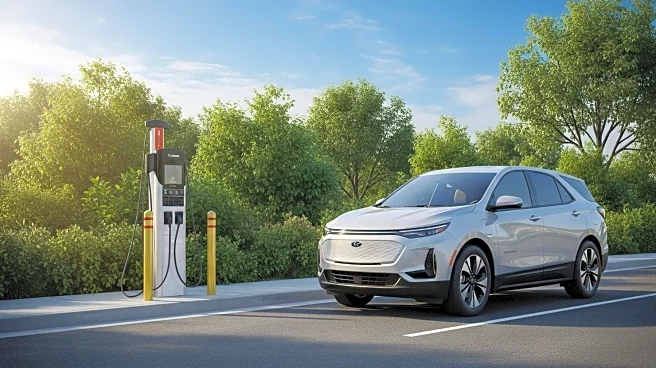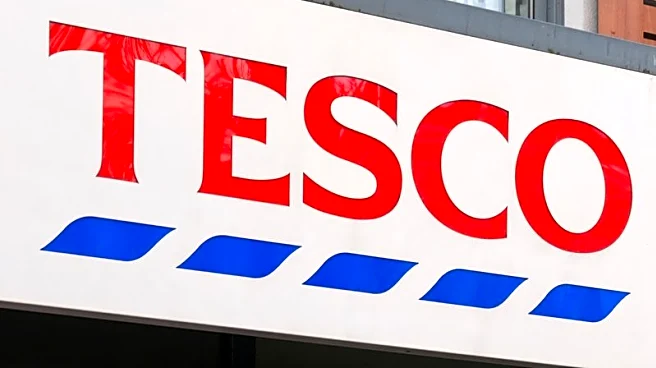What's Happening?
A TikTok video by Ana R showcases her visit to a Chevy dealership for an oil change with her red Jeep, only to leave with a new white Chevy Equinox EV. The video highlights the dealership's successful sales strategy, which involved introducing Ana to the Equinox EV and encouraging her to take a test drive. This approach leverages the emotional experience of driving an electric vehicle, emphasizing the instant torque and unique driving experience that EVs offer. The dealership's initiative comes at a crucial time as federal EV incentives are set to expire soon, making the sales process even more significant.
Why It's Important?
The story underscores the growing acceptance and interest in electric vehicles among consumers, despite challenges from political opposition. The dealership's proactive approach in promoting EVs highlights the importance of emotional engagement in the sales process, which can significantly influence consumer decisions. As federal incentives for EVs are nearing expiration, dealerships are under pressure to maximize sales and educate customers about the benefits of electric vehicles. This shift towards EVs could have broader implications for the automotive industry, encouraging more dealerships to adopt similar strategies to boost EV sales.
What's Next?
With federal EV incentives set to expire soon, dealerships may intensify efforts to promote electric vehicles and capitalize on the remaining time to secure sales. This could lead to increased consumer interest and demand for EVs, prompting manufacturers to ramp up production and availability. Additionally, dealerships might explore innovative sales techniques, such as test drives and experiential marketing, to attract more customers and highlight the advantages of electric vehicles.
Beyond the Headlines
The transition to electric vehicles represents a significant shift in consumer behavior and automotive industry practices. As more consumers experience the unique benefits of EVs, such as instant torque and reduced maintenance costs, the demand for traditional combustion engine vehicles may decline. This could lead to long-term changes in manufacturing priorities, environmental impact, and energy consumption patterns, as the industry adapts to a more sustainable future.











